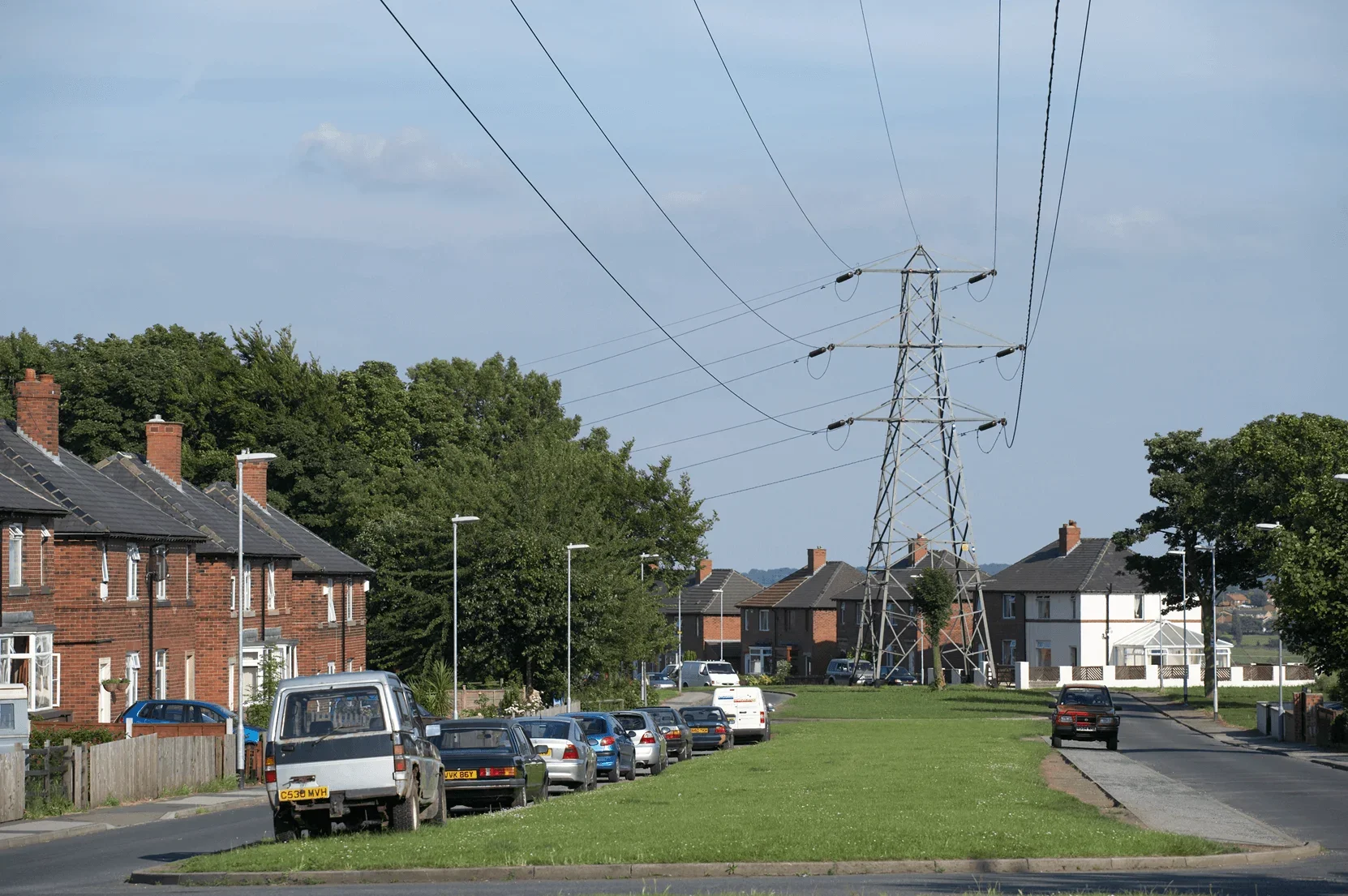BUSINESS ENERGY
What are no standing charge business energy tariffs?
Read time: 5 minutes
By Les Roberts, Business Energy Expert
8th January, 2026
When you compare business energy tariffs, you may have noticed that quotes show the “standing charge” alongside the unit rates. But what exactly does this mean, and how does it affect your business energy costs?
This guide explains everything you need to know about business electricity and gas standing charges, including how they work, how they differ across contracts, and whether a no-standing-charge tariff could be the right option for your business.
What are the latest business energy standing charges?
The standing charge for business electricity and gas can vary depending on the size of your business. Standing charges in January 2026 are as follows:
| Business size | Standing charge (electricity) | Standing charge (gas) |
| Micro business | 58.5p | 38.4p |
| Small business | 70.0p | 45.8p |
| Medium business | 142.4p | 48.5p |
| Large business | 261.9p | 71.9p |
Note: Prices are correct as of January 2026. Rates and bill size may vary according to your meter type and business location. The prices you’re quoted may be different from the averages shown. The figures shown are the average unit rates and standing charges quoted by Bionic per business size from January 1 to January 7, 2026.
What is a standing charge?
The standing charge on your business gas and electricity bill is a fixed fee that you pay each month to cover the cost of supplying power and connecting your premises to the energy network. It’s a flat charge you have to pay regardless of how much energy you use.
It helps cover the cost of maintaining the infrastructure, like power lines and gas pipelines, that deliver energy to your business. Standing charges ensure that the energy network remains operational and ready to provide energy when you need it.

How do standing charges work on business energy contracts?
The standing charge you pay can vary depending on the type of energy contract you’re on. It’s important to know how your contract’s standing charges are structured to understand the full cost of your energy supply.
Fixed contracts
On a fixed contract, the standing charge will usually be priced in pence per day. Most fixed and variable business energy contracts include a standing charge. For example, your business electricity bill might show the following charges:
- Unit rate – 25.6p per kWh
- Standing charge – 54.2p per day
If your business uses 10,000kWh of energy a year, then you’ll pay £2,560 for the energy you use, plus a further £198 in standing charges.
Unit rates and standing charges can vary significantly based on the supplier and the length of your contract. It’s important to compare both to get a true idea of the total cost.
Flexible contracts
If you're a large business with higher energy usage, flexible contracts may offer a pass-through standing charge. These charges are typically set by the companies that operate and maintain the energy network and are passed on to you by the supplier.
The fees for these services can fluctuate based on factors such as changes in the Distribution Use of System (DUoS) or gas transportation charges.
Could your business benefit from a no-standing charge tariff?
If your business only operates part of the year, or if you only use energy for a few hours each day, you might benefit from a business energy tariff with no standing charge.
These types of tariffs allow you to pay only for the energy you use, making them an attractive option for businesses that have irregular or low energy usage.
Advantages of a no-standing charge tariff
The main benefit of a no-standing charge tariff is that you only pay for the energy you use – no daily fees, even if you don’t consume any energy. This is especially beneficial if your business is closed for periods of time, such as during holidays or weekends, as you won’t be paying for gas and electricity when you’re not using it.
However, it’s important to understand that no standing charge tariffs usually come with higher unit rates compared to those that include a standing charge. While the rate for each kilowatt-hour (kWh) of energy might be higher, you might still save money overall if your energy usage is low.
Disadvantages of a no-standing charge tariff
While no standing charge tariffs seem like an attractive option at first, they may not always be the best choice for every business.
If your business uses a lot of energy, you may end up paying more for your energy than you would with a contract that includes a standing charge. This is because the unit rates for these tariffs tend to be higher than on other fixed contracts, and businesses that use a significant amount of electricity or gas could end up paying more overall.
As ever, it’s worth doing your sums and speaking to an energy expert before you commit to a contract. For higher-usage businesses, it’s possible that the unit rate will outweigh the benefit of having no standing charge.
How can you lower your business energy costs?
If standing charges are part of your business’s energy bill, being more energy efficient and thinking about when you use energy can help cut your bills. Consider the following tips:
- Energy efficiency upgrades: Implementing energy-efficient practices, such as switching to LED lighting or improving insulation, can help reduce your overall energy usage, which will lower both your standing charges and unit rates.
- Consider time-of-use tariffs: Some business energy suppliers offer time-of-use tariffs, where the price of electricity changes depending on the time of day. If your business operates at non-peak hours, these tariffs may help reduce your costs.
- Switch suppliers: Regularly comparing business electricity suppliers can help you find a deal that best suits your business. Different suppliers have varying standing charge structures, and switching to one that offers lower charges or a better unit rate could save you money.
If your business is small or has irregular energy usage, exploring no standing charge business electricity options might save you money. However, larger businesses with higher energy consumption may benefit more from traditional tariffs with lower unit rates.
For tailored advice on which tariff is best for your business, start a business energy comparison by clicking the "Compare tariffs today" button on this page or go to our main business energy comparison page.
Is it time to compare business energy quotes and switch?
Take the hassle out of sorting your next energy deal. We compare from a panel of suppliers. You choose the rates that are right for your business.
By clicking ‘COMPARE TODAYS RATES’ you agree for us to search your current energy supplier and usage though industry held data. Enter manually
Our experts share essential knowledge on business energy
All related guides
View all energy guides
- A complete guide to business energy for offices
- A complete guide to business energy for restaurants
- A complete guide to business energy for shops
- Average business energy consumption - How much does your business use?
- How to get a business energy audit to save money and boost efficiency
- A complete guide to business energy bills
- Business energy brokers – everything you need to know
- What are no standing charge business energy tariffs?
- Business energy efficiency: how to save energy at your business
- Change of Tenancy - Moving business premises and your energy contract
- Commercial property landlord energy advice
- Energy performance certificate for business
- A complete guide to half hourly electricity meters
- How does the energy market affect the cost of your energy bills?
- How switching to energy efficient lighting can save your business money
- How to pay your business energy bills to save money and avoid late fees
- How your business credit score affects your energy deals
- Compare large and industrial business energy prices
- Prepayment meters for business: The complete 2025 guide for SMEs
- What are renewable energy certificates and REGOs for small businesses?
- Renewable Energy for Business
- Business Smart Meters: Your Guide to Savings, Installation, and Supplier Comparison
- Commercial solar panel electricity
- The nuclear RAB levy explained: what it means for your business
- A business guide to time-of-use energy tariffs
- Business energy tariffs explained
- Everything you need to know about the Smart Export Guarantee (SEG)
- Compare small business & micro business energy prices
- Compare the cheapest business energy suppliers
- What is the Climate Change Levy?
- Business energy meter installation: Your complete guide
- Multi-site meters and business energy management
- How much is VAT on business energy?
- What happens when your energy supplier goes bust?
- What is a letter of authority (LoA) for business energy?
- What is Market-wide Half-Hourly Settlement (MHHS) and how does it work?
- What is business microgeneration?
How to switch business energy suppliers with MoneySuperMarket
We can switch your business to a better energy deal in three simple steps
1
We find your details
Just enter your business address and we'll use industry data to accurately find and understand your energy usage.
2
We talk through your quotes
One of our UK-based energy experts will search our supplier panel and give you a call to talk through your quotes.
3
You choose the deal you want
With all the information to hand, you choose the deal that best suits your business and we’ll handle the switch for you.
Compare today’s business energy rates
By clicking ‘COMPARE TODAY'S RATES’ you agree for us to search your current energy supplier and usage though industry held data. Enter manually






